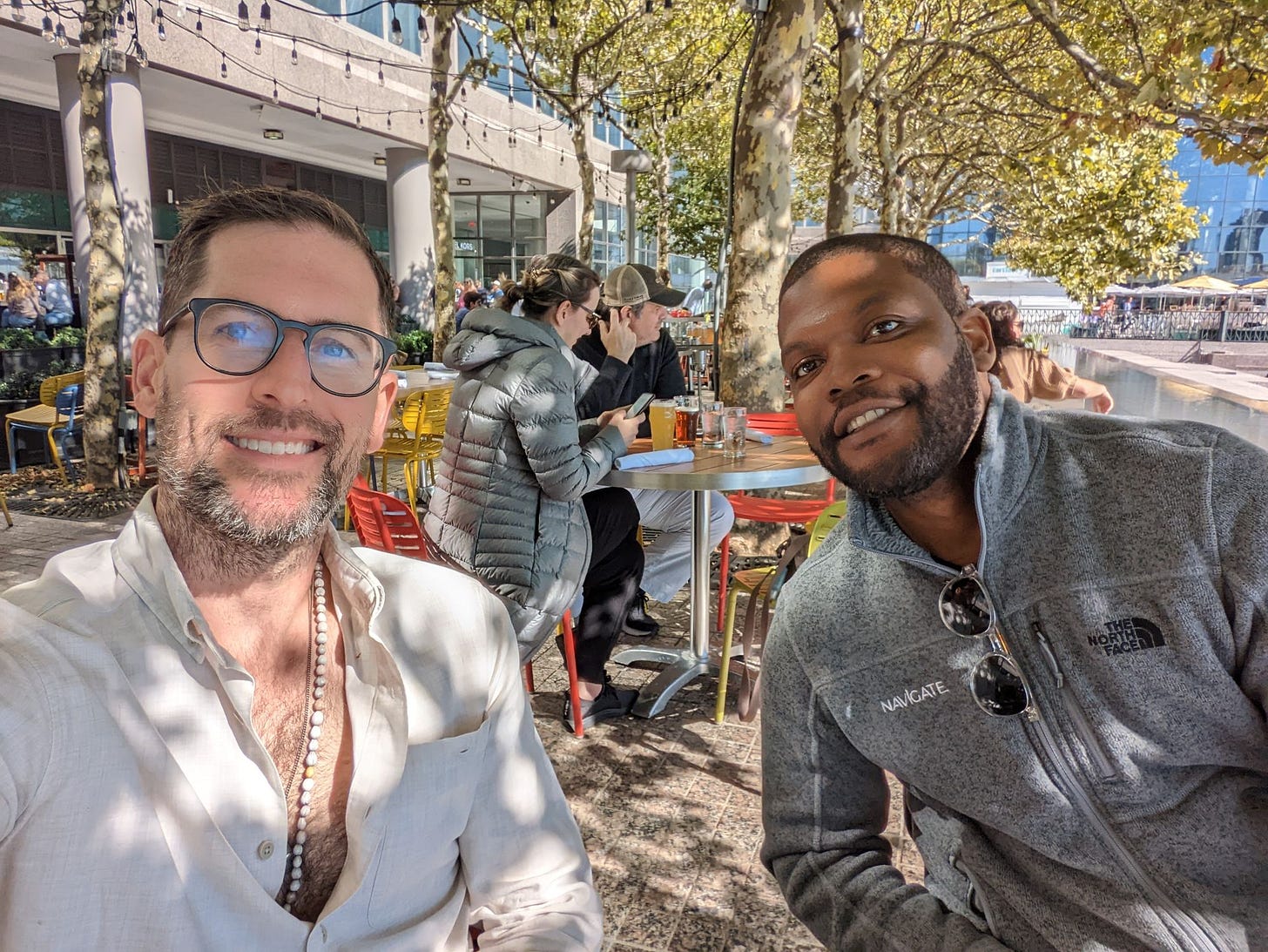Value: The Four Cornerstones of Corporate Finance: Cornerstone #1

Kola is always on the path of mastery.
He’s been on the path to mastering chess for a while but I recently asked him the other day if he’s invested in the markets, if he picks stocks, that sort of thing. He said not so much, but that investing and crypto are the next areas of development he wanted to pursue. Knowing Kola, I understood that as, “next to master.” I wanted to be along for the ride.
I proposed like I always do reading and talking about something to jump on that mastery path. We created a doc and threw possible content in there from podcasts, to newsletters, to books, of course. We landed on a book a MBA classmate of Kola’s recommended, Value: The Four Cornerstones of Corporate Finance. A guy, he later tells me, was a pundit on CNBC even while he was in grad school.
What was interesting about this pick was that it’s not on the surface about investing. The angle, the audience, is those high up in a public corporation. Definitely not us wondering about investing and crypto but I realized as I read that investors can still learn a lot from it. That’s because it deals with the fundamentals. The fundamentals so fundamental that I highlighted and promptly keep forgetting them. So I will dive into them and ramble a bit about them each in the hopes they stay put a bit longer in my mind. I will share more about Kola and I's conversation in a future post. Heeeeere we go.
Value
The book is titled Value: The Four Cornerstones of Corporate Finance. But wtf is value anyways? And maybe, more interestingly, what is value not?
There is no disputing that value is the defining metric in a market economy. When people invest, they expect the value of their investment to increase by an amount that sufficiently compensates them for the risk they took, as well as for the time value of their money.
To put it simply, if controversially, it’s just “more.” Put money in. Get more back. Profit. Growth. Increase. This alone is interesting enough to unpack in a whole post.
Some questions the more simple version of this quote kicks up are, is more always just? Is forever increase even possible? What about the defining metric in a non-market economy? Outside or adjacent to a market economy? What sorts of trade in a market economy is high quality? Poor quality? Who should be the judge? Why are they the best possible judge? What’s the nature of a non-market economy?
Cornerstone #1
Companies create value by investing capital from investors to generate future cash flows at rates of return exceeding the cost of that capital (that is, the rate investors require to be paid for the use of their capital).
Again, I end up with more questions than answers here too. The first cornerstone is all about cash flows. What are cash flows? What is the cost of capital and why does it cost that amount? How much does it change? How often?
Google cash flow and you get, “the total amount of money being transferred into and out of a business, especially as affecting liquidity.” Again, “value” is about in and out, but more “in” than “out” is the key. Otherwise you’re destroying value, burning cash. Throwing good money after bad, as they say.
And what about the cost of capital? How much money does the money cost? Why does the money cost that amount? Turns out, this one is a bit more complicated, but the way I understand it is capital either comes via equity or debt. When it’s debt, there’s always an agreement on the interest to be paid and a time horizon of the payment. Basically, it’s like money on the shelf in a supermarket with a clear price tag on it. You head to checkout, pay what the price tag says and the money is yours to walk out the door with.
When it’s equity, the calculation of the cost of it is a bit more complicated and you have to take into consideration where else one might be putting their money, but suffice it to say, it still comes with a price tag, just one that’s a bit less clear. (For more on this question.)
Cornerstone #1 summation for myself is:
[Input] Take money from self or others (investors) at a cost —>
[Throughput] Do some stuff with it/to it —>
[Output] Exchange the stuff with others in the market for more money than you took from yourself or others (investors).
To me it makes sense that this is basically the first cornerstone. It is simple and seems true. It follows from something even simpler I think. Incentive. Motivation. Values.
Exchange is as old as humans. Markets are pretty old as well. Without going back that far, just going back to any time there’s been money, no one really wants to only ever burn money. (If you didn’t do anything for it, or you can’t really get anything you want for it, or if you have too much of it then you might burn it.) You’re going to want more of it. Maybe not endless more of it as that sounds to me more like a cancerous tumor.
The Word “Investment” and Alchemy
Why do we call this “more” creating investment? I ask, because I know enough of a few romance languages to know this word used to mean something more like to dress, as in, to put on clothes. Checking out my favorite source of truth on topics like this etymonline.com you get a tip to think about dressing up more loosely. More as “the notion of giving one's capital a new form.” More like alchemy. Changing this into that. Doing work with money and then trading that doing or time + money for “more” money than you started with.
This makes me think about the alchemy of it all. The old notion of alchemy centered around turning lead into gold. Something less valuable into something more valuable, demand-wise, social context-wise. There was a sort of magic to it. Knowledge of the magic, of the how + doing + lead = gold. If you have the knowledge and a plentiful supply of lead, then you can make gold on demand. If you manage to keep the knowledge a secret then you can have wealth beyond your wildest dreams.
But with alchemy there’s a sort of magic assumed. Is there any magic in our everyday investment alchemy? Very seldom is healthy cash flow generated by only money. One must also add one’s doing/time and/or one’s knowledge/skills/abilities. If you think of this as an equation you end up with the money in and out cancelling each other out and the “more” being equal to the doing/time and/or knowledge/skill/ability.
invested capital + labor /knowledge = profit + invested capital
This means that profit is fundamentally “labor” or more specifically “doing” time with knowledge/skills/abilities. We turn time or knowledge into money. But not just in the “time is money” sense though that may be true. We turn minutes of our lives into profit/more money.
Life Time = Profit/More Money
The scarcity around us everyday, at the heart of much of our calculations and fears stems from death. Let’s say we each get, on average 1 billion minutes. When we’re “working”, participating in the market, we’re alchemists turning some of those precious minutes of our lives into profit/more money/cash flow/value. And if we’re turning precious minutes of our lives into money and then we turn around and burn it, what did we spend those minutes creating? Something to just turn into smoke? I think deep down, when we lose money, there is a sense we’re losing bits and pieces of our lives. Lives we only get one of. I also assume there’s a “what was the point of ‘spending’ those minutes in that way in the first place? This makes us want to invest wisely. Both when it comes to where and how we store our money and when it comes to where or how we ‘spend’ our time.


